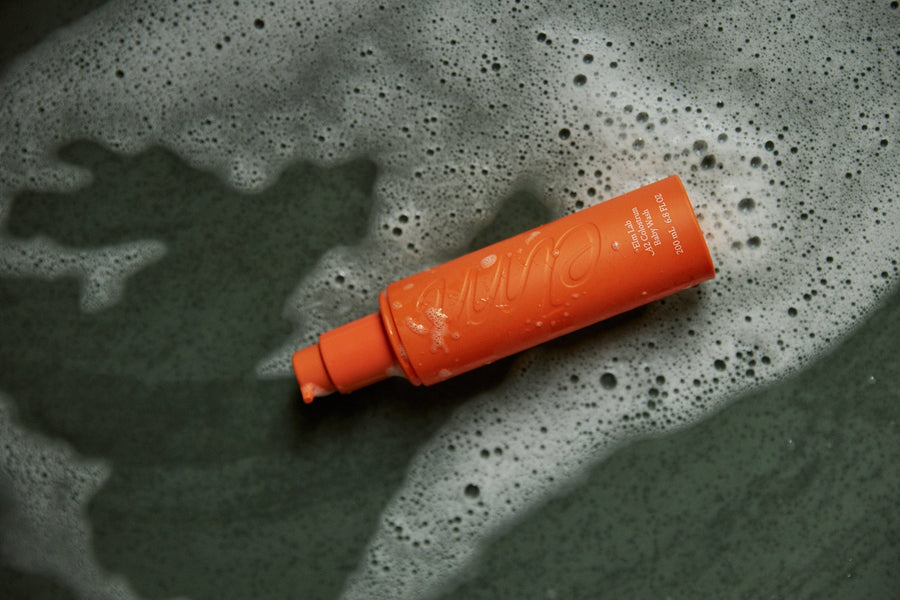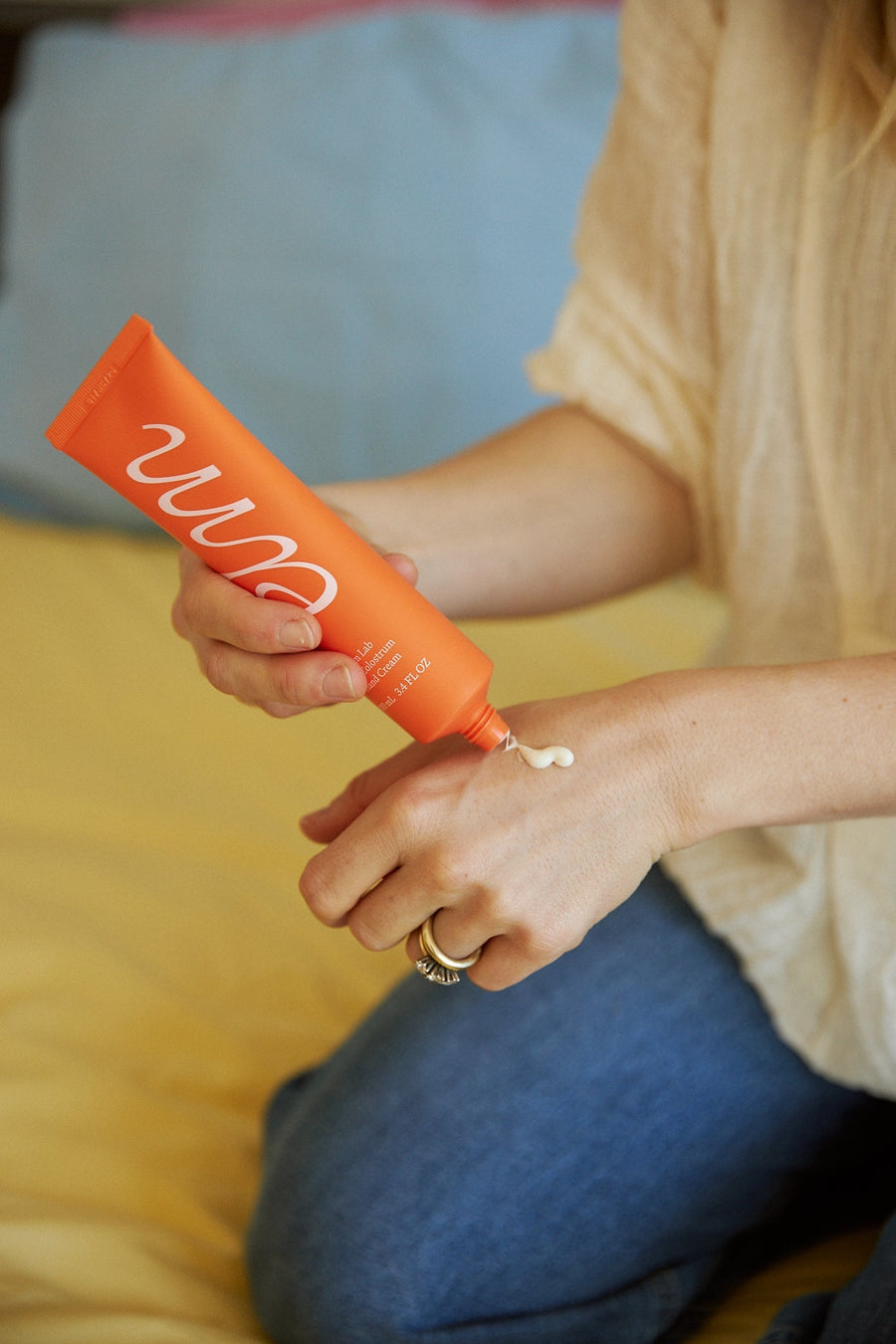A1 and A2 Colostrum and Your Skin
It’s no surprise that colostrum is gaining global recognition in skincare. Often referred to as “liquid gold” for both its rich golden hue and its extraordinary nutritional profile, colostrum is the first milk produced by mammals in the days following birth. Rich in proteins, vitamins, moisture binding compounds and trace bioactives such as immunoglobulins, lactoferrin and growth factors, it’s naturally produced to support early nourishment and development. Now, it’s being celebrated for its gentle profile and skin supportive properties.
However, not all colostrum is the same. There’s an important distinction between A1 and A2 colostrum, rooted in the type of protein called beta-casein. New Zealand skincare company Elm Lab, has intentionally chosen A2 colostrum in its colostrum based range, because it contains only the A2 form, structurally more stable and closer to the protein found in human milk. While the research into A2 milk has focused on its digestibility and nutritional tolerance compared to A1 milk, Elm Lab applies the same level of care to what goes on the skin as to what goes in the body, formulating with the gentlest, most consistent foundation it can offer.
What’s the Difference Between A1 and A2 Colostrum and Why Does It Matter for Your Skin?
The difference between A1 and A2 colostrum lies in the type of beta-casein (the main protein found in cow’s milk) produced by the cow. A1 cows produce a version of beta-casein that breaks down into BCM-7, a peptide studied in relation to digestive sensitivity in some individuals. A2 cows, on the other hand, produce only the A2 form of beta-casein, which is structurally closer to the protein found in human milk and does not release BCM-7. While the research focuses on gut health, this structural difference may influence how colostrum interacts with the skin’s surface, particularly for those with sensitivities. Elm Lab’s commitment to using A2 colostrum reflects both emerging science and a formulation philosophy grounded in gentleness and compatibility.
Colostrum’s topical properties are being explored in scientific research, including a 2024 peer-reviewed analysis published in Cosmetics, a journal focused on dermatology and bioactive ingredients. The review highlights its powerhouse components: hyaluronic acid (which binds water and hydrates), lactoferrin (a protein being studied for its role in skin balance and comfort), immunoglobulins (proteins being explored for their contribution to skin resilience) and growth factors (proteins being studied for their role in supporting the skin’s natural renewal processes). It also notes colostrum’s content of telomerase, an enzyme being explored for its role in cellular protection. Together, these compounds help maintain hydration, support comfort and contribute to a healthy looking appearance, making colostrum a compelling natural ingredient for sensitive or stressed skin.
The Science Behind the A2 Difference
A2 colostrum contains a unique form of beta-casein protein that differs structurally from the A1 variant, making it more stable and less likely to produce peptides associated with digestive sensitivity. While this distinction is primarily studied in nutrition, its structural characteristics made A2 colostrum the natural foundation of choice for Elm Lab’s formulations, especially when developed with compatibility for delicate skin in mind. Elm Lab’s use of A2 colostrum reflects a commitment to purity and compatibility, formulating with the same care a mum would choose for her baby.
For babies, postpartum mums and anyone with compromised or sensitive skin, colostrum offers a naturally rich source of hydration and skin support. Its bioactive compounds, including growth factors, immunoglobulins and lactoferrin, are being studied for their role in supporting skin comfort and barrier integrity. Colostrum also contains vitamins A and E, which contribute to antioxidant protection and zinc, a mineral associated with maintaining skin balance, making it a particularly thoughtful choice for baby skincare and postpartum care, where skin is often dry, delicate or under pressure.
How A2 Colostrum is Sourced and Why Does it Matter for Your Skin?
Elm Lab’s A2 colostrum is sourced exclusively from a DNA-verified, grass-fed herd raised on Elm Grove, the founder’s sixth-generation family farm on the Taieri Plains in Otago, New Zealand. Animal welfare is central to every decision, calves receive all the nourishment they need before any collection takes place. In the days following birth, a healthy cow naturally produces 15 to 20 litres of colostrum per day, while her newborn typically consumes around 4 litres. Elm Lab simply preserves the nutrient-rich surplus that would otherwise go unused, capturing its skin-supportive benefits with care and integrity.
That surplus colostrum is frozen immediately and then gently freeze-dried in small batches to preserve its natural proteins, vitamins and growth factors. The result is a potent, shelf-stable ingredient that retains its original bioactivity, ready to support hydration, comfort and skin resilience. Whether used on baby skin, postpartum skin or sensitive skin at any life stage, how colostrum is sourced matters and Elm Lab’s process honours both its origin and its purpose.
Conclusion
Colostrum is nature’s first nourishment and not all colostrum is the same. Elm Lab chooses A2 for its structural integrity and compatibility with delicate skin. Unlike A1, A2 colostrum does not produce BCM-7, a peptide associated with digestive sensitivity, making it a gentler, more suitable foundation for formulations designed to help maintain hydration and comfort where skin needs it most. Sourced exclusively from Elm Grove, the founders’ sixth-generation family farm in New Zealand, every batch of colostrum is DNA-verified, ethically collected and fully traceable from pasture to product.
Disclaimer
This article is for informational and educational purposes only. It does not constitute medical advice, nor does it make therapeutic claims about Elm Lab Skincare Limited’s (“Elm Lab”) products. Elm Lab’s skincare range is formulated as a cosmetic product and is not intended to diagnose, treat, cure or prevent any disease or medical condition.






